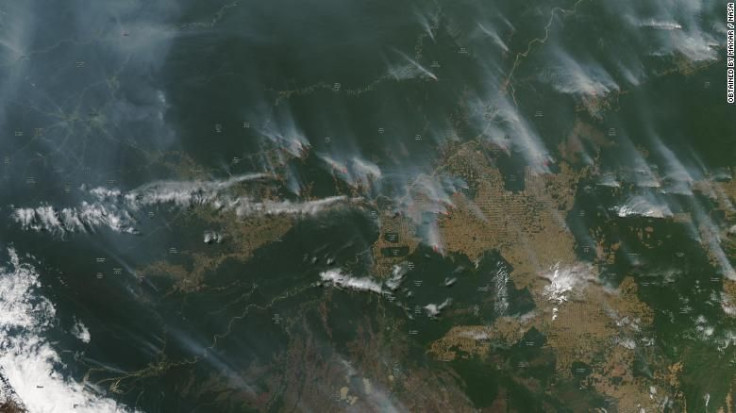
Nations from Brazil to Indonesia met Wednesday to seek a plan to save the world's tropical rainforests, a day after South American leaders drew criticism for failing to adopt a pledge to protect the Amazon.
Brazilian President Luiz Inacio Lula da Silva has gathered leaders and high-level officials from South America, the Caribbean, Africa and Asia in the city of Belem, at the mouth of the Amazon river, for a two-day summit on charting shared strategies to protect the world's tropical forests, key buffers against climate change.
But environmentalists sharply criticized the first day's outcome: a joint declaration by the eight South American nations that share the Amazon basin, which failed to include pledges to stop illegal deforestation by 2030 or ban new oil exploration, as climate activists and Indigenous groups had urged.
The eight-country Amazon Cooperation Treaty Organization (ACTO) expanded its focus Wednesday, meeting with the leaders of the Democratic Republic of Congo, Congo-Brazzaville, Saint Vincent and the Grenadines and Indonesian envoys to seek a common path forward ahead of the next UN climate talks.
"Tropical forest countries need to have the weight and voice we deserve in the international arena," Brazilian Foreign Minister Mauro Vieira told the meeting.
"Developed countries need to do their part... They need to fulfill their funding pledges to help developing countries on climate change, biodiversity and sustainable development."
The conference also included representatives from Norway, the top donor to Brazil's Amazon Fund to protect the world's biggest rainforest, and France, which shares a piece of the area via the overseas territory of French Guiana.
French President Emmanuel Macron voiced his support for the cause in a message read out by France's ambassador to Brazil.
"It is urgent to act to protect our forests and end deforestation," he said.
The United Arab Emirates, which will host the COP28 UN climate talks in December, sent its special envoy for climate change, Sultan Ahmed al-Jaber, chief executive of the Abu Dhabi National Oil Company (ADNOC).
The Belem summit is something of a dress rehearsal for the UN climate talks that the northern Brazilian city will host in 2025.
But despite Brazil's pledges to launch an ambitious roadmap to save the Amazon, the closely watched summit failed to impress observers on its first day.
The Amazon countries' joint declaration "has no clear measures to respond to the urgency of the crisis," said Leandro Ramos of environmental group Greenpeace's Brazil office.
"There are no targets or timelines to stop deforestation, no mention of an end to oil exploration," he said in a statement.
Home to an estimated 10% of Earth's biodiversity, 50 million people and hundreds of billions of trees, the vast Amazon is a vital carbon sink, reducing global warming.
But scientists warn its destruction is pushing it dangerously close to a tipping point, beyond which trees would die off and release carbon rather than absorb it, with catastrophic consequences for the world's climate.
Marcio Astrini, head of the Brazil-based Climate Observatory coalition, said the nearly 10,000 word "Belem Declaration" adopted Tuesday amounted to "just a list of promises."
"The planet is melting, temperature records are being broken every day... It is not possible for eight Amazonian leaders to fail to put in a declaration in bold letters that deforestation must be zero," he said.
Vieira characterized the declaration as just a first step.
"In order to make sure our shared vision doesn't just remain on paper, we'll have to adopt concrete actions with a sense of urgency," he said.
"We can't reach the point of no return in the Amazon."
But regional leaders are divided on a timeline to end deforestation and the issue of oil exploration.
The debate comes as Brazil eyes opening new offshore oil fields at the mouth of the Amazon river and Ecuador heads for a referendum this month on halting drilling on a strategic oil bloc on the Yasuni Indigenous reservation.




